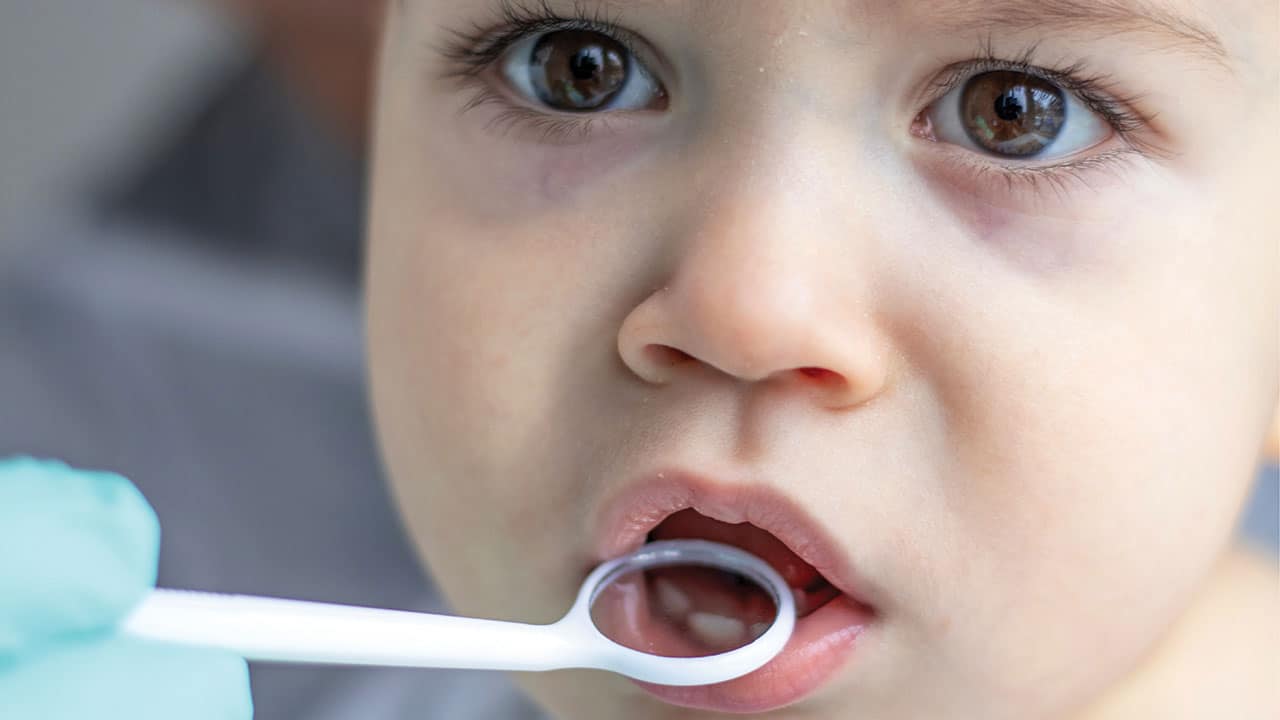
DiYES International School – Early Childhood Caries (ECC) is a serious dental issue that affects many children worldwide, often starting as soon as their first teeth appear. This condition, also known as baby bottle tooth decay or early childhood tooth decay, refers to the presence of cavities in young children’s teeth, especially in those under the age of 5. ECC can cause pain, infection, and even the early loss of teeth if not treated properly. Fortunately, with proper care and preventive measures, parents can help protect their child’s smile and prevent this common problem. In this article, we will explore the causes, symptoms, and ways to prevent Early Childhood Caries to ensure your child has a healthy, bright smile for years to come.
ECC occurs when the teeth are repeatedly exposed to sugary substances, such as milk, juice, and sweetened liquids, especially when the child goes to bed with a bottle. The bacteria in the mouth feed on sugars and produce acids that erode the enamel of the teeth, leading to cavities. These cavities can start as small, white spots on the surface of the teeth and, if left untreated, progress into deeper decay, potentially resulting in pain and infection.
“Read about: Epilepsy in Children: Signs, Treatment, and Hope for the Future”
Some of the primary causes of ECC include:
When children are given sugary liquids in bottles or breastfeed throughout the night, the sugar remains in contact with the teeth for longer periods, increasing the risk of cavities. This constant exposure to sugar allows harmful bacteria in the mouth to thrive and attack the tooth enamel.
Children who do not have their teeth cleaned regularly are at a higher risk for developing ECC. The buildup of plaque and bacteria on the teeth can contribute to tooth decay. Parents should begin cleaning their child’s teeth as soon as they appear, using a soft toothbrush and a small amount of fluoride toothpaste.
A diet high in sugary foods and drinks can significantly increase the risk of ECC. Snacks like candies, cookies, and sugary drinks are often a major contributor to tooth decay. Additionally, sticky foods, such as raisins and fruit snacks, can cling to teeth and cause prolonged exposure to sugar.
Fluoride helps to strengthen tooth enamel and protect against decay. If a child does not receive enough fluoride, either through drinking water or fluoride toothpaste, their teeth may be more susceptible to decay.
Parents should be aware of the early signs of ECC to ensure prompt intervention. Common symptoms to watch for include:
One of the earliest signs of ECC is the appearance of white spots on the teeth, particularly along the gum line. These spots indicate the beginning of enamel demineralization and may be reversible with proper oral hygiene and fluoride treatment.
As the cavities progress, the teeth may start to turn yellow or brown. If left untreated, the discoloration may worsen, leading to visible holes or pits in the teeth.
Children with ECC may experience pain or sensitivity, especially when eating hot, cold, or sweet foods. If your child complains about discomfort while eating, it could be a sign of tooth decay.
If your child has trouble eating or chewing, it could be due to pain from cavities. This is a red flag that should prompt an immediate visit to the dentist.
“Read more: Jaundice in Children: What Parents Need to Know”
Preventing ECC involves a combination of good oral hygiene, healthy eating habits, and regular dental visits. Here are some key steps to protect your child’s smile:
Start cleaning your child’s teeth as soon as the first tooth appears. Use a soft-bristled toothbrush and a smear of fluoride toothpaste. For children over the age of 3, use a pea-sized amount of toothpaste. It’s important to brush twice a day—once in the morning and before bedtime.
Limit your child’s intake of sugary snacks and drinks. Encourage a balanced diet that includes fruits, vegetables, whole grains, and dairy products. Water and unsweetened milk are the best drink choices for your child’s teeth. Avoid sugary drinks like sodas and fruit juices, which contribute to tooth decay.
Fluoride helps to strengthen tooth enamel and prevent cavities. Make sure your child uses fluoride toothpaste and, if necessary, provide them with fluoride treatments as recommended by your dentist. In areas where the water supply is not fluoridated, your dentist may suggest fluoride supplements.
Take your child to the dentist for regular check-ups, starting at the age of 1 or within six months after their first tooth erupts. Regular dental visits allow the dentist to monitor your child’s oral health and catch any potential issues early on.
Sticky foods, such as fruit snacks and gummy candies, tend to cling to teeth and can contribute to tooth decay. If your child does consume these foods, ensure they brush their teeth afterward or rinse their mouth with water.
Early Childhood Caries (ECC) is a preventable condition that can have long-term consequences for your child’s oral health. By practicing good oral hygiene, providing a balanced diet, and visiting the dentist regularly, you can protect your child’s smile from cavities and decay. Early intervention and prevention are key to ensuring your child has strong, healthy teeth throughout their childhood and beyond.